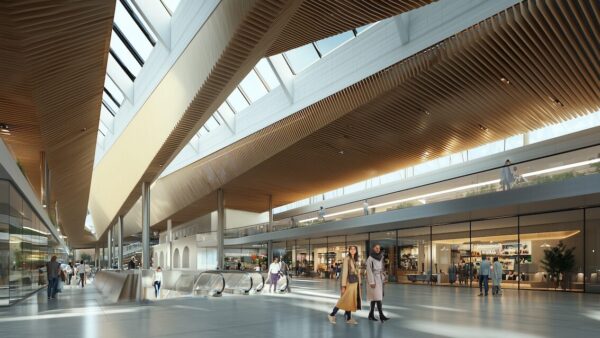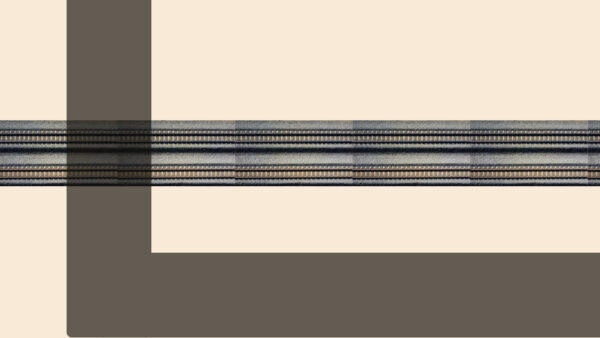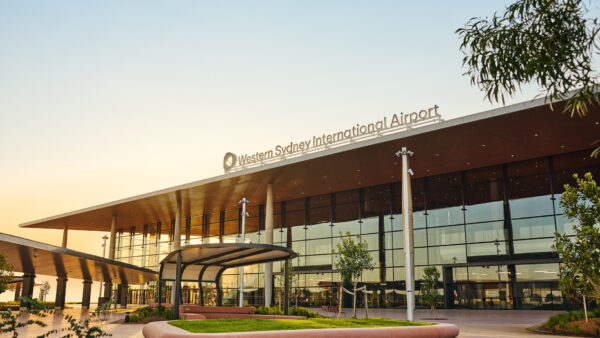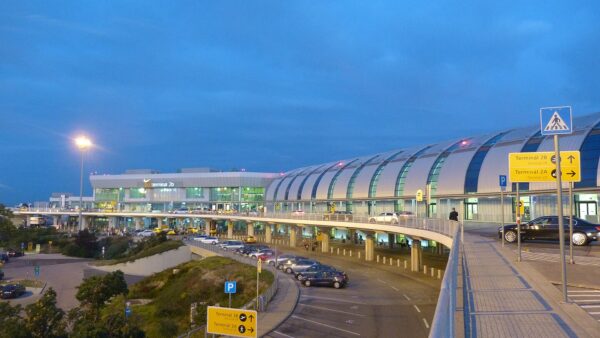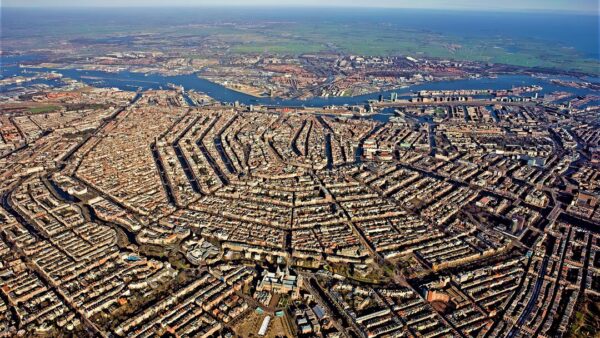Ninety per cent of companies now opt to use arbitration to decide cross-border construction disputes, according to research by Queen Mary University London (QMUL) and law firm White & Case.
Arbitration’s popularity has increased significantly since QMUL’s first survey in 2006, when the figure was 73%.
The research also shows that London and Paris continue to be the preferred venues for arbitration over the past five years (45% and 37%, respectively).
However, Hong Kong and Singapore are gaining momentum as Asia becomes ever more important for investment in big infrastructure and large-scale construction projects. Singapore is perceived to be the most improved seat for international arbitration over the past five years, with Hong Kong following closely behind.
The report suggests that the popularity of arbitration over litigation is explained by the enforceability of arbitral awards, the flexibility of the process, the ability to avoid specific legal codes and to choose which lawyer or professional will act as the arbitrators.
In international arbitration, where parties can select arbitrators with specialist knowledge, there is a likelihood of achieving a more considered result which better reflects the specifics of the issue– Michael Turrini, White & Case
Michael Turrini, a White & Case construction partner based in the Middle East, said: “Construction is a particularly technical area of law, constantly evolving and often involving complex design and engineering defects and delay and disruption claims. As such, it sits at the apex of some very complex disciplines.
“Companies that choose litigation run the risk of having a court-appointed judge who may not have a construction background. However, in international arbitration, where parties can select arbitrators with specialist knowledge, there is a likelihood of achieving a more considered result which better reflects the specifics of the issue.
“When the typical value of construction-related claims average $150m but can be well over $1bn, it has never been more important to choose the right method of dispute resolution.”
Another factor is the greater number of very large infrastructure schemes in Asia, which are so complex and require resources on such a large scale that disputes are both more common and more costly than run-of-the mill megaprojects. The report comments that this explains the growing importance, and the growing arbitral skill base, in Hong Kong and Singapore.Â
When respondents were asked to choose their three preferred institutions, 68% included the International Chamber of Commerce in their answer, and more than a third (37%) included the London Court of International Arbitration, mirroring the results from the 2010 International Arbitration Survey.Â
The Hong Kong International Arbitration Centre and the Singapore International Arbitration Centre came in third and fourth (28% and 21%, respectively). The survey revealed that institutions are primarily chosen due to their high level of administration capacity, their perceived neutrality and “internationalism” and their ability to administer arbitrations worldwide.
Photograph: London is the preferred seat of international arbitration, followed by Paris and Hong Kong (Wikimedia Commons)
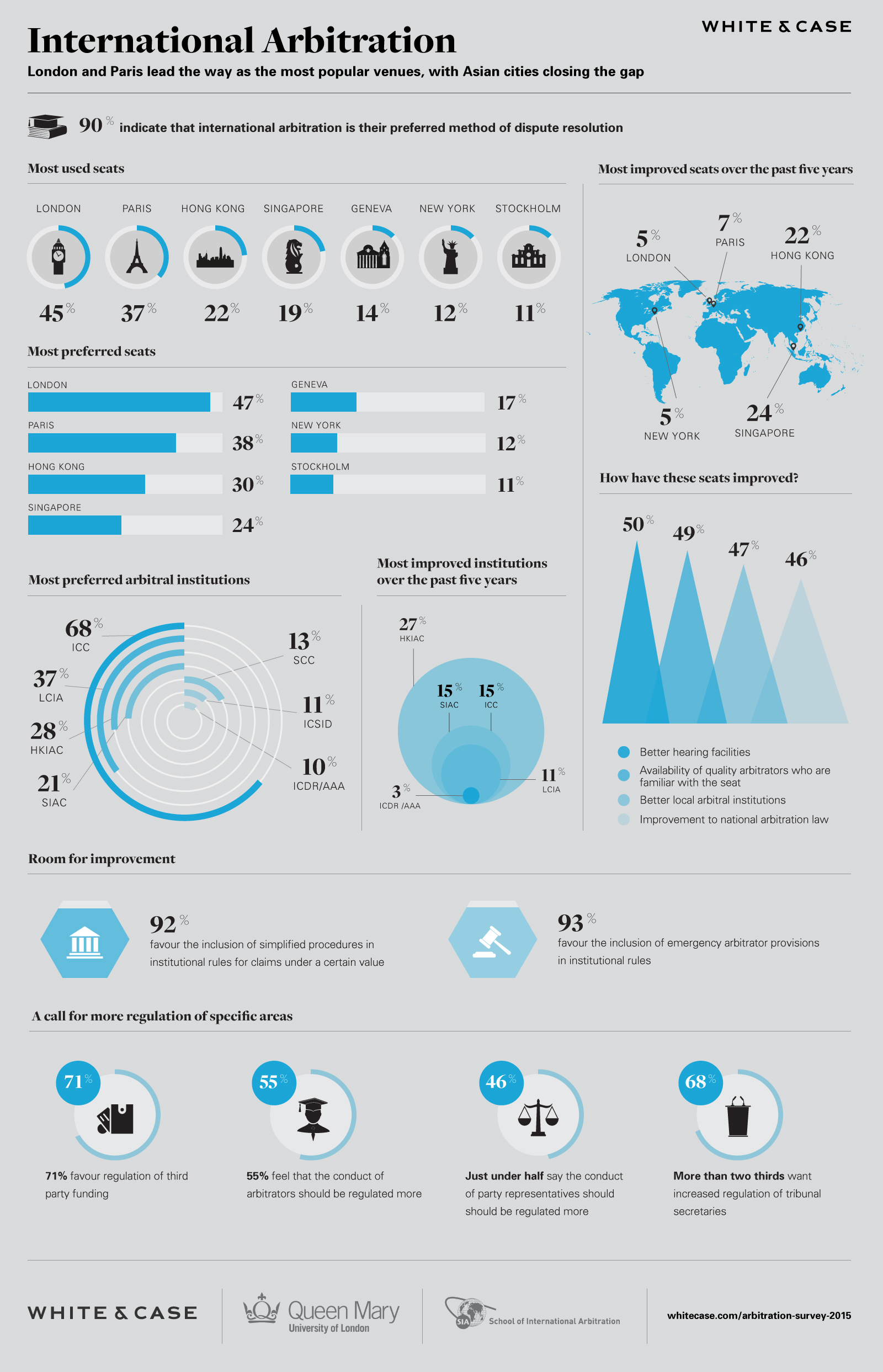
Arbitration key facts (graphic by White & Case)

